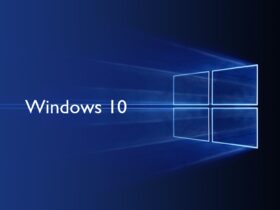At a media forum on Thursday, July eight, 2010, at the Allen & Co’s Sun Valley convention, Google executives Larry Page and Sergey Brin, knowledgeable Journalists that Steve Jobs become re-writing Android’s records to align with Apple’s hobbies. They argued that, opposite to Steve Jobs’s claims, Google worked on Android long before the iPhone was released in 2007.
Read more Articles :
- Mac Security: Mac Defender Malware
- Apple MacBook Air 13″ – Ultimate Ultraportable Alternative?
- Message Brings iMessage To Android For MacOS Owners.
- An Introduction to Forensics From Android Mobile Devices
- Technology in College Education: Student Engagement Through iPod
According to Mr. Page: “We were operating on Android for a totally long term, with the notion of producing telephones which might be net-enabled and had exact browsers and all that because did not exist within the marketplace. I suppose that people’s characterization as getting into after the iPhone turned introduced isn’t always truly reasonable. ” Google co-founder Larry Page opined that Mr. Jobs claim that Google went into the smartphone commercial enterprise so that it will project Apple iPhone turned into fake.
However, a review of telephone records will display that Google received Android in 2005 and started making phone prototypes quickly later on. Informed sources say the version of the Android telephones that Mr. Jobs saw at that time seemed more just like the Blackberry. This suggests that Google’s preliminary idea might not have been to make telephones appear like the iPhone.

Now the question most enterprise watchers are asking is that if Google had been working on an Android-powered phone, why did they wait till September 2008, a year after the iPhone become released, to introduce the G1 cellphone? Also, the facts recommend that it was due to tensions over Google’s access into the smartphone enterprise that may contribute to Mr. Eric Schmidt’s exit from the Apple board. Analysts trust that Google may have been operating on an Android-powered phone earlier than the iPhone was added. Still, the iPhone appeared to have given them higher insights on perfecting their personal phone. This is mainly authentic given the resemblance of the Nexus One to the iPhone.
An also confirmation of Google’s cause for launching the Android phones might be gleaned from comments they made at the Google I/O convention held closing May. At the occasion, Google explained that they introduced Android to purchasers so that Apple might now not gather widespread impact that could grow to be draconian.
The records also appear to indicate that Google went into the cellphone business following the conclusion that the destiny of computing might be in transportable gadgets like phones and tablet computer systems. As a result, they went into the smartphone enterprise to dominate internet search on that platform, similar to what they had done on laptops. This perception is supported through Eric Schmidt, CEO of Google, in published comments, he made in an interview with the United Kingdom Guardian newspaper on June 25th, 2010. In that interview, Mr. Schmidt suggested that he wishes Android to be the Windows of Mobile.
Also, in that same interview, Mr. Schmidt made crucial remarks approximately Microsoft Windows. He said: “You need to ask how on earth Windows Phone – to be able to have a paid-for license – is ever going to attract any handset makers. However, it needs to be loudest for builders considering whether the shrinking, forwards-incompatible pool of Windows Mobile phones is sincerely worth bothering with”.
In comparison, Apple appears to have gone into the phone commercial enterprise as a re-positioning method and with a purpose to make large sales from the sale of the smartphone hardware itself. Also, with the arrival of the clever telephones, Apple realized that there had been a huge potential within the place of Mobile Advertising. This becomes why they sought to collect Admob. While Apple changed into negotiating to shop for Admob, a mobile advertising company, Google quickly stepped in and acquired Admob. As a result, Apple went in advance to collect Quatro wi-fi, which is Admob’s largest competitor. In response to Google’s acquisition of Admob, Apple has re-written the regulations of its cell Advertising platform known as the iAd, consequently shutting out Admob, which were received with the aid of Google.

As the clever smartphone battle rages on Bloomberg, news reviews that Apple has bought greater than 50 million iPhones, considering its advent. According to Apple CEO, Steve Jobs the state-of-the-art model iPhone four has bought more than 3 million gadgets since its June 24, 2010 debut. Analysts believe iPhones account for almost 35 percent of Apple’s $42. 9 billion in sales. Also, the iPhone has over two hundred, 000 programs with over 5 billion downloads to date.
The rapid increase of programs on Apple’s ecosystem may be traced to the agency’s preliminary incentive to builders. For example, in the beginning, to inspire Applications to run on the iPhone, Apple made oblique funding utilizing the distinctive feature of a $one hundred million undertaking-capital fund set up with the aid of Kleiner Perkins Caufield & Byers. Today Apple has paid over a thousand million bucks to developers when you consider that inception.
Apple’s success has spurred other gamers inside the telephone market like HP, LG, RIM, Google, Palm, Nokia, and Microsoft to broaden mobile stores in which clients with cell systems will pay and download packages.
Like Apple, Google has achieved fulfillment with its Android-powered smartphones as sales have persisted to upward thrust dramatically. An affirmation of Android’s boom may be gleaned from the effective remarks made via Google’s Senior VP of Product Management, Jonathan Rosenberg, in July 2010. According to Mr. Rosenberg, there are 160 000 Android-based totally devices being activated daily. He stated that Android search grew by using three hundred percent inside the first half of 2010, with a strong boom anticipated to retain in the second half.
Mr. Rosenberg introduced that standard revenue jumped with the aid of 24 percent 12 months-on-12 months, and profit elevated through 19 percent, as well. Informed reports show that as of May 2010, there had been 50 000 Android Apps; however, today, they’re over 70, 000 and with the aid of the end of the yr, they have to reach one hundred, 000. Google has also tried to encourage builders of packages for the Android working system through competition. Also, in keeping with statistics made to be had through Andro Lib, Android customers have downloaded a couple of billion applications to date.
Interestingly, every other degree of the fulfillment of Google Android phone can be seen from fine figures posted via HTC, the Taiwanese smartphone manufacturer inside the 2nd zone of 2010. In July 2010, its net earnings rose by 33 percent for the second area, and overall sales turned into 58 percent greater than closing years figures. According to the Wall Street Journal, for the second region of 2010, HTC made $268 million in earnings.
The upward thrust in the earnings of HTC reflects the success of Google because analysts believe that it’s far Android telephones that might be using the business enterprise’s boom. The wide attractiveness of HTC’s Google Android-powered phones like Evo 4G, the Droid Incredible, the Google Nexus One, and T-Mobile-My Touch three are supporting to put HTC as a leading phone producer.
A pointer to the speedy growth of Google’s Android can be discerned from the reality that Comscore mentioned on July eight, 2010, that Google’s Android platform grew by way of 44 percent from February to May. According to Comscore, in the 3 three-month time frame from December to February, Android had a mean market proportion of about 9 percent of the cellphone’s within the United States. However, within the following 3-month time frame, from March to May, the Android marketplace proportion grew to approximately thirteen percentage.
Remarkably regardless of the boom in Android’s market share, the Comscore document confirmed that as of July 2010 that RIM turned into number one with forty-one. 7 percent percentage of U. S. Phone subscribers, accompanied by Apple’s aid with 24.4 percent proportion. Microsoft changed into third with a 13.2 percent proportion; Google’s Android changed into 4th with thirteen percent, and Palm turned into 5th with a 4.8 percentage marketplace share. Market analysts say an overview of the totality of the Market will suggest that Android is growing at a price to see it outpace all its competitors.
The Google-Apple face off within the clever cellphone market is growing to be like Apple -Microsoft struggle of the eighty’s and ’90s. In the Apple-Microsoft battle of the ninety’s Microsoft won competitive benefit over Apple because as Microsoft changed into forming partnerships with PC companies, Apple stored its working device closed for use in handiest it’s personal pc systems. In that type of association, Microsoft Windows soared in market share whilst Apple stagnated.
In the existing case, Google’s Android platform is growing hastily because it’s miles free, such a lot of handset producers are showing a preference for it. Also, and is to be had on more than one-companies like AT&T, Sprint, Verizon, and T-Mobile. However, the Apple iPhone Os runs handiest on a single device -the Apple iPhone and one service ATT. Experts believe if this fashion keeps it, that could result in a gradual boom for the iPhone in destiny.
Industry resources say it may most effectively be fair to compare Apple iPhone and other smartphones jogging on Android on a character basis to determine how properly everyone stacks up towards the iPhone. Experts believe that collectively the smartphones running on Android may additionally eventually have extra marketplace share than the Apple iPhone phone, which is an unmarried tool. Still, for my part, none of the Android telephones might probably outsell the iPhone that is regarded because of the fastest-selling smart cellphone in history.

A pointer to the smartphone marketplace’s future will seem like it is contained in a recent report published by IDC, a Market intelligence employer. According to IDC’s evaluation by way of 2013, Symbian will be the number one cellular OS worldwide, even as Android will be the No. 2. IDC predicts that Android may additionally, in all likelihood, gain the fastest boom of any cellular operating machine ever.









